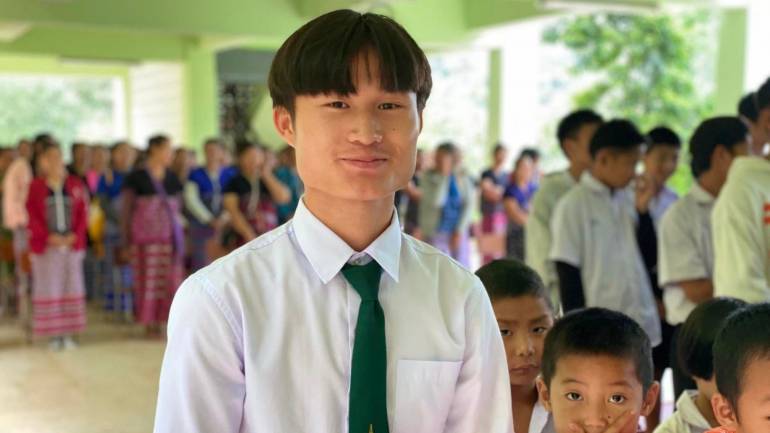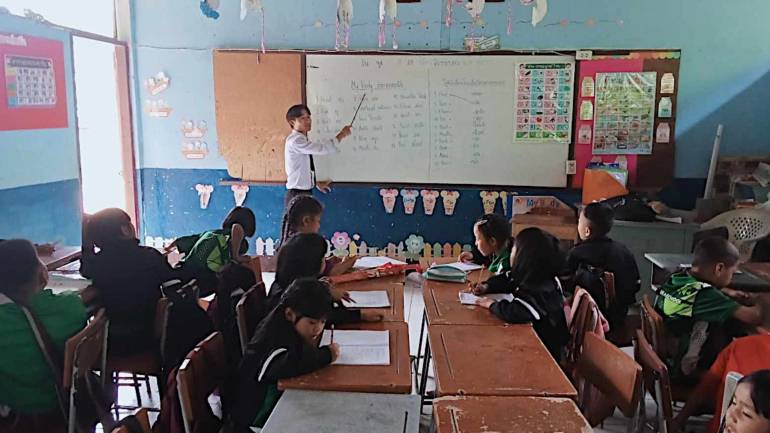Teaching, learning in rural Thailand
For many students in northern Thailand, particularly in areas close to the Myanmar border, such as Chiang Mai, Tak, Mae Hong Song, and Chiang Rai, going to school during the rainy season is a challenge.
The roads become muddy, and the bridges are often damaged due to flooding. These situations have become common occurrences in Thailand.
However, for the students and teachers directly affected by them, it represents a form of inequality within society and a problem that the government has yet to fix.
During the semester break, Chaisit Chaiboonsomjit, a student at Xavier Learning Community (XLC), a Jesuit institution of higher learning serving ethnic minorities in Chiang Rai, northern Thailand, volunteered as a teacher at Zi Brae School in Chiang Mai. Situated atop a mountain, the school is about an eight-hour journey by car or motorcycle.
When it rains, the roads become impassable, making it exceedingly challenging for teachers to reach the school. The school has more than 200 students, mostly from the Karen Hill tribe, and employs 15 teachers. They studied seven subjects provided by the Thai Education Ministry.
Chaisit chose to volunteer at Zi Brae School because he grew up close to the Myanmar border. He was born in Tak province, where today thousands of people affected by the conflict in Myanmar are seeking refuge.
When he was a child, he met many children who could not go to school because their families could not afford the school fees. His childhood experience inspired Chaisit to become a teacher. He believes that one day he can help students get a quality education.
"During my teaching exposure, when I visited remote areas in Chiang Mai, I found many schools and students who lacked support. In some schools, there are very few teachers. I hope to continue developing myself so I can be the best teacher in the future," Chaisit said, adding that he will never give up, even with the challenges of teaching in rural areas.
"I love to teach. My motivation lies in supporting students who lack educational opportunities. Education is so significant, but many people don’t have the chance to receive proper education," he said.
Chaisit, who is set to graduate from XLC in 2024, shared how being a volunteer teacher brought him great joy. "The students that I taught, I believe, will be good people who will help society in the future." - Narongdet Chuanchuenchom/Jesuit Conference of Asia Pacific
Radio Veritas Asia (RVA), a media platform of the Catholic Church, aims to share Christ. RVA started in 1969 as a continental Catholic radio station to serve Asian countries in their respective local language, thus earning the tag “the Voice of Asian Christianity.” Responding to the emerging context, RVA embraced media platforms to connect with the global Asian audience via its 21 language websites and various social media platforms.
















